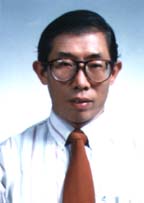Submitted by zhenliang on

An excerpt from ' A Discourse in Buddhism ' by Simon Leong
Do not believe in anything simply because it is the traditional customs that is according to the Buddha’s advice. But we must no totally discard all traditions. According to the Kalama Sutta, “You must try to experience with them and put them thoroughly to test. If they are reasonable and conducive both to your happiness and to the welfare of others, only then should you accept and practice these traditions and customs.” This is one of the most liberal declarations ever made by any religious teacher. This tolerance of other’s tradition and customs is not known to some other religions.
While preaching the Dhamma, Buddhist missionaries have never advice the people to give up their traditions as long as they are reasonable. In other words, one should not violate the religion precepts in order to follow one’s traditions.
The rites and rituals are ornamentation or a decoration to beautify a religion in order to attract the public. They provide a psychological help to some people. But one can practice religion without rite and rituals. Certain rite and rituals that people consider as the most important aspects of their religion for their salvation are not considered as such in Buddhism. According to the Buddha, one should not cling to such practices for his spiritual development or mental purity. Rite, rituals, ceremonies, processions and festivals are organized to quench that thirst for emotional satisfaction through religion.
The impact of Buddhism on the traditional Chinese philosophies and customs.
After a long period of research, the Buddhist doctrines of various schools have influenced the circle of Chinese thought. Taking the Confucian School of Philosophy for example, its arising was stimulated and influenced by the Avatamsaka school, the Meditation School and some other Buddhist doctrines. This is the historical fact generally accepted by the circle of the Chinese thought. During the later Qing Dynasty, a movement which Chinese intelligentsia researched and studied the Buddhist doctrines became the common practice. Some activists of the Enlightenment Movement for Democratic Thought employed the Buddhist ideas of Loving kindness, Compassion, Egalitarian, Impermanence and Non-self played the incentative roles in the field of thought then.
Since Buddhism is so popular in the Chinese community and is believed by people of all walks of life. It had then influenced on Chinese customs.
(a) The belief in three births-the past, the present and the future. In Buddhism, it is stated that the cause of a previous birth, is shown in the present life. The result of the next life, is all done in the present life.
(b) To believed in rebirth in six ways: - Heavenly plane, human plane, asura plane, animal plane, hungry ghost plane and hell. The first three are called “Three Wholesome planes,” and the last three are called, “unwholesome planes.” It is often said that one who has a kind heart and does good deeds will be reborn in the wholesome plane; one who has a wicked mind and commits sins and evil deeds will be thrown into the unwholesome plane. The cycle of birth and death goes on and on.
(c) To believe in retribution- If you grow a melon, you will get a melon. In fact, the theory of cause and effect that “ good will produce a good response and evil will produce a bad response,” this will definitely prove right.
(d) To believe in merits-Practicing charity, paving roads, constructing bridges, plating trees by the roadsides, free medical treatments, etc, are acts of charity.
(e) To believe in repentance- In Buddhism, it is said that, “ All sins are created by the mind.” Therefore, it is essential to repent.
(f) To believe in transference of merits to departed ones by inviting monks to recite sutras to save them from evil rebirths. Participation in “All Souls Day,” is the transference of merits.
Simon Leong
The author has written several books on the subject of Buddhism and Yoga, and is currently looking for sponsors to help publish his books. If you would like to be a sponsor, please call Bro. Hong Yew Chye at (6)04-6414822 Ext: 2003 or email ychong@thanhsiang.org
--------------------------------------------------------------------------------
About the Author
A Malaysian poet Simon Leong is a Charter Lifetime member of the International Society of Poets. In November 1, 1996 he was elected into the International Poetry Hall of Fame, Owing Hills, MD, on the Internet World Wide Web, which will be on permanent display in the Museum as the premier showcase for poetic talents ( http://www.poets.com/SimonLeong.html ) & included in Listing of Asian-American Poets: Choy-Yin Leong, Simon birth 1938: //www.rothpoem.com/listasia.html
He received a Decree of International Letters of Cultural Achievement, LFABI, USA. He said, “ A poet is a person who has accepted the study of poetry to a certain degree with passion and insight not only as a writer but also a reader. A retired Stanchart banker, he holds Diplomas in Sales Management, Marketing Analysis and Accounting besides Freelance Journalism and English. He is a free scholar of the International Buddhist University, Thailand and earned his Bachelor of Arts first degree in 2002.
“A Discourse in Buddhism,” this book attempts to satisfy the needs of the student who is preparing for an examination of Diploma level, or who wishes to deepen his knowledge on Buddhism even though he may not be taking an examination. His writings include, “As I See the World Today” published by Vantage Press, NY, 1994; “We are the World”, 1997, and “Save Our World”,2000 both are by Windsor Associates, CA, USA.

